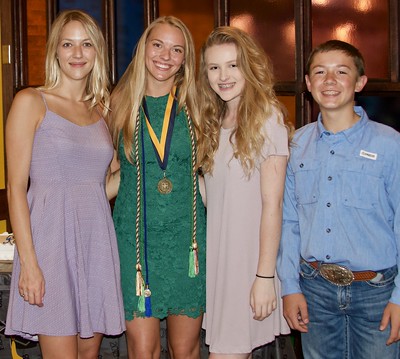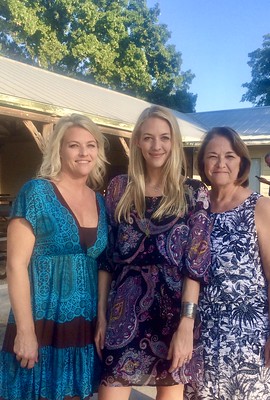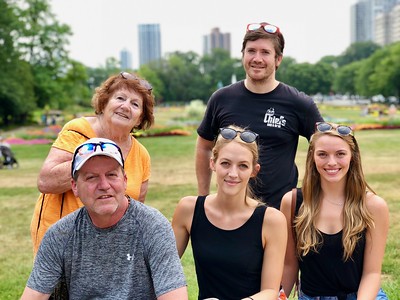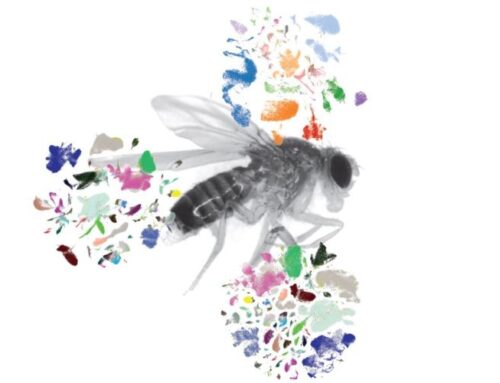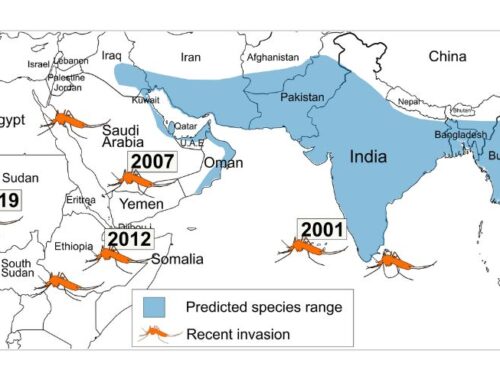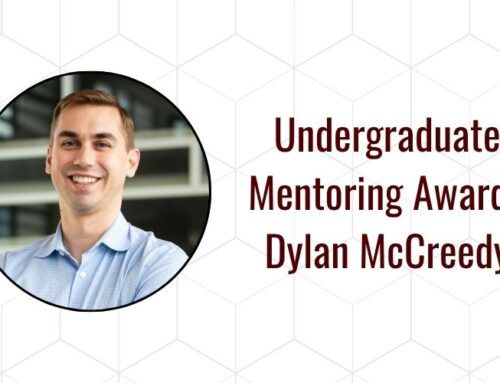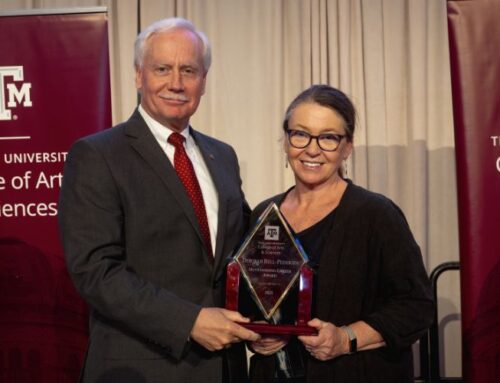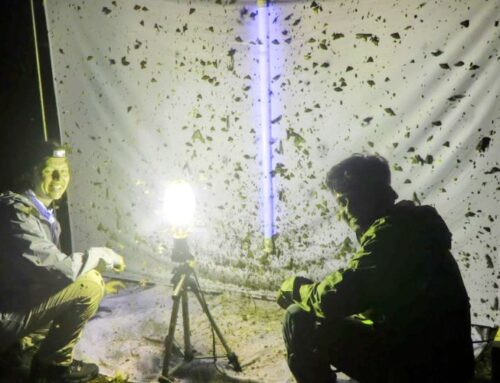Graduate Student Spotlight, Ashley Hudson
This month’s Graduate Student Spotlight highlights Ashley Hudson. A student in the Lockless Lab, Ashley studies E. coli membrane potential modulations. Learn more about Ashley and her graduate experience in this month’s Spotlight below.
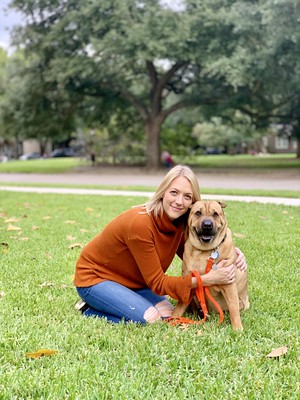
Ashley Hudson
I was born and raised in Austin, TX and am the eldest of four children. I completed my B.S. in Biology at St. Edward’s University in 2015, where I conducted undergraduate research in Dr. Patricia Baynham’s lab working with pathogenic E. coli. Upon graduating, my husband and I moved to Houston, where I worked as a Laboratory Technician at Baylor College of Medicine’s Children’s Nutrition Research Center. While at BCM, I worked in the labs of Dr. Michael A. Grusak and then Dr. Nancy E. Moran, and it was there that I decided to pursue graduate school. In 2017, I moved to College Station to join Dr. Steve Lockless’ lab where I study E. coli membrane potential modulation.
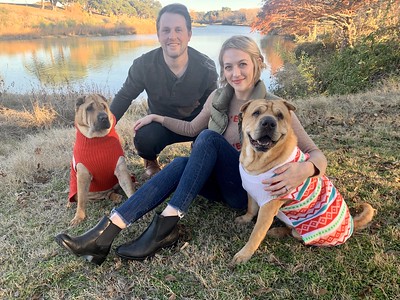 What is on your bookshelf?
What is on your bookshelf?
Anything written by David Sedaris – he is hilarious and extremely talented. The most recent thing I’ve read by him is Theft by Finding. Also, I try to find time to read some of the books featured on Live at Politics & Prose. They always have great recommendations if you’re looking for a new book to read.
What is one thing people would be surprised to know about you?
My family has strong connections to Texas history. My great (x4) grandfather, Nicholas “Cheyenne” Dawson, settled in Austin in 1851. His son was a member of the first graduating class at Texas A&M and then attended UT Law. His daughter, Mary “Mollie” Dawson, was the principal of the very first public school in Austin that opened in 1886. All four of my grandparents and both of my parents grew up in Texas, as well.
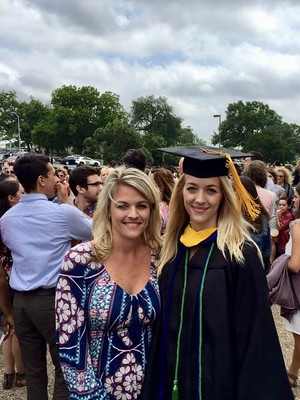 What characteristics do you prize most in a colleague?
What characteristics do you prize most in a colleague?
I feel that dependability/reliability are some of the most important qualities for members of a research group.
What strategies did you use to be successful as an undergraduate student? As a graduate student?
As an undergraduate, I always tried to get a full night of sleep and eat well, regardless of what I had going on with school and work. I always had a strict study/work/school/exercise schedule too. My commute in Austin to St. Edward’s was usually 1-2 hours, so to not waste that time, I’d record lectures and listen to them in the car. Also, being organized is super important and has served me well in grad school, as well as during undergrad. I try to write everything down and keep as organized of a lab notebook as possible.
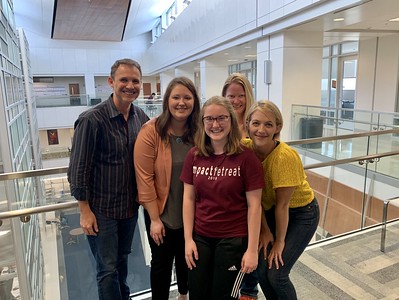 What projects are you currently working on?
What projects are you currently working on?
Upon joining the lab, I developed a high-throughput assay to identify compounds that alter bacterial membrane potential. I used this particular assay to screen a library of 30,000 compounds and found several that appear to be antimicrobial. I am now working to further characterize the interesting compounds and elucidate their targets in E. coli.
What advice would you give to new/incoming students?
I think choosing a PI and a lab to join is one of the most important decisions you make in graduate school. Choose an advisor and lab group with whom you mesh well and are comfortable asking questions. You’ll be close with this group for at least for the next 5 years so having a good relationship with them is critical. The Lockless lab has been a great fit for me.
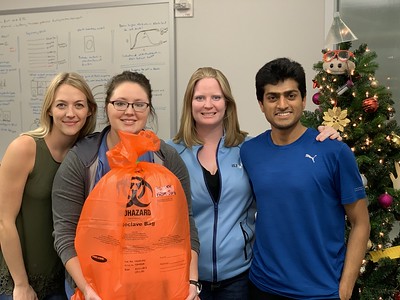 Describe the course that has had the greatest impact on your thinking.
Describe the course that has had the greatest impact on your thinking.
I think the course that has impacted my thinking the most is probably Microbial Physiology with Dr. Siegele. The course is centered on reading and interpreting current and past literature in the field. It really made me think about how I write about and present data from my own research and how I read and interpret literature. The format of the class is also extremely effective; it’s a small class size and everyone sits around a block of tables facing each other which maximizes participation and promotes meaningful discussion.
What projects are you working towards next?
I will be screening a library of E. coli mutants for those with altered membrane potentials. It is our hope that this approach will allow us to better understand precisely how membrane potential is regulated in bacteria and allow us to uncover novel targets for antimicrobials.
